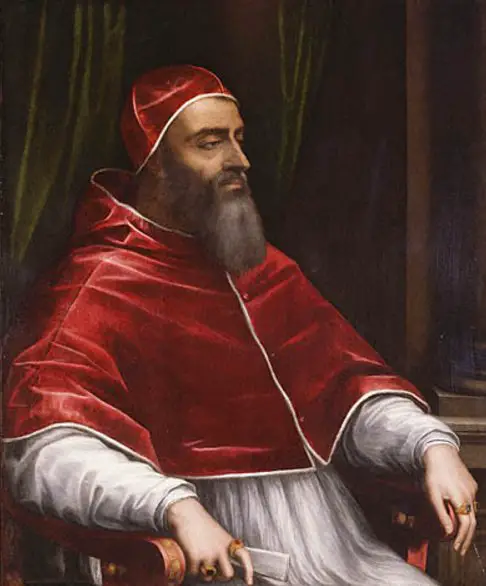On this day in Tudor history, 26th September 1580, in the reign of Queen Elizabeth I, Sir Francis Drake returned from his 3-year circumnavigation of the Globe. Drake landed at the port of Plymouth, in his ship, The Golden Hind, which was laden with treasure and spices.
In today's talk, I give details about his circumnavigation of the Globe, what he brought back, and how Queen Elizabeth I rewarded him for his efforts.
You can find out more about Sir Francis Drake's life, death, and the two legends associated with him, in my video from 27th January:
Also on this day in history:
- 1533 – Death of William Benet, diplomat, at Susa in Italy. He had been appointed Henry VIII's Resident Ambassador to Rome in 1529 and remained in that position until the break with Rome. He was on his way home from Rome when he died.
- 1555 – Death of Thomas Berthelet, printer, in London. Berthelet had been Henry VIII's printer from 1530 until the King's death in 1547.
- 1588 – Death of Sir Amias (Amyas) Paulet, administrator, diplomat, Governor of Jersey and gaoler of Mary, Queen of Scots. He was buried in St Martin-in-the-Fields, Westminster. Paulet served Elizabeth I as her resident ambassador in France and a Privy Councillor, and was present at the execution of Mary, Queen of Scots. When he was acting as Mary's gaoler, Elizabeth I had suggested that it would be easier if Paulet quietly murdered her. He refused.
- 1592 – Burial of Thomas Watson, poet and translator, at St Bartholomew-the-Less. Watson is known for his unusual eighteen line sonnets and his Latin works.
- 1595 – Burial of Sir Owen Hopton, administrator and politician, at St Dunstan's Church, Stepney. Hopton served Elizabeth I as Lieutenant of the Tower of London from 1570-1590, as a member of Parliament and a Sheriff.



Sir Francis Drake, the English man who sailed around the world and had a small role in the defeat of the Spanish Amarda was a slaver, a pirate, a rogue, an adventurer, a soldier, a hero, whatever people want to make of him. He burnt ships in Cadiz and he attacked Spanish ships and territory, not exactly the example we should have as a hero today, but he is still a essential English hero because we need male role models from history and Drake has been that in the imagination of youth. His circumnavigation was an amazing achievement, especially when you think how difficult life was on board those small but fast ships, with long spells of a lack of fresh food, illness and weeks and weeks of open waters, native people who were far from friendly at times, swamps and he even faced mutiny and attempted murder. Like Magellan, who actually died on his circumnavigation 1519 to 1522, Drake lost ships and men and a fraction of his crew made it home. Magellan having died on his return voyage, was still honoured for his achievements, although it was his second in command who actually finished his voyage and who had completed his circumnavigation. Drake had to sacrifice two of his own three ships and returned laden with treasure for Queen Elizabeth. Unfortunately for Francis Drake, in an attempt at a final glory and something of a counter Amarda he was taken seriously ill and died on his final voyage.
There is a very odd legend that the drum at his home in Buckland Abbey in Devon will beat if England is in trouble and Drake will come to the rescue.
I think a lot of these explorers were like that, legalised pirates. I don’t think any of these men would be viewed as heroes today. I do love the legends that surround him though.